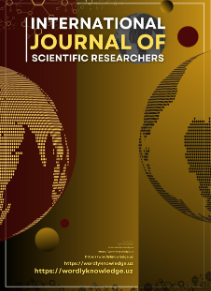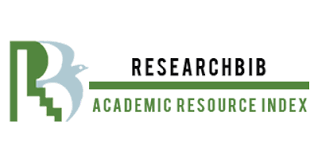MODERNIZING ENGLISH LANGUAGE TEACHING THROUGH COLLABORATIVE LEARNING STRATEGIES
Keywords:
Collaborative learning, English language teaching, peer interaction, language proficiency, student engagement, critical thinking, teamwork.Abstract
This article explores the role of collaborative learning strategies in modernizing English language teaching (ELT). Collaborative learning has emerged as a dynamic pedagogical approach that encourages active student engagement, enhances linguistic proficiency, and fosters critical thinking. The article delves into the impact of group-based activities, peer interaction, and teamwork on the development of language skills, while examining the challenges and benefits of integrating such strategies into English language curricula. The study emphasizes the importance of fostering an interactive, student-centered learning environment to facilitate more effective language acquisition.
References
1.Boqieva, M. (2024, April). DEVELOPING SPEAKING SKILLS OF ESP STUDENTS. In Conference Proceedings: Fostering Your Research Spirit (pp. 169-171).
2.Godwin-Jones, R. (2018). Emerging Technologies: Language Learning and New Media. Language Learning & Technology, 22(2), 3-10.
3.Johnson, D. W., & Johnson, R. T. (1999). Learning Together and Alone: Cooperative, Competitive, and Individualistic Learning. Allyn and Bacon.
4.Nigmatovna, U. F., & Qizi, B. M. O. (2024). MANAVIY BARKAMOL AVLODNI TARBIYALASH MASALALARI. Science and innovation, 3(Special Issue 32), 160-164.
5.Qizi, Y. N. A., Qizi, Z. M. S., Abduraimovich, Y. A., & Ravshanovna, M. B. (2024). THE ROLE OF LEADERSHIP SKILLS IN RAISING A SPIRITUALLY MATURE GENERATION. Science and innovation, 3(Special Issue 32), 418-422.
6.Richards, J. C., & Rodgers, T. S. (2014). Approaches and Methods in Language Teaching (3rd ed.). Cambridge University Press.
7.Sato, M., & Kleinsasser, R. C. (2014). Teacher collaboration and language learning. Language Teaching Research, 18(3), 365-382.
8.Skehan, P. (1996). A Cognitive Approach to Language Learning. Oxford University Press.
9.Xasanovna, O. L. (2025). PECULIARITIES OF TEACHING ENGLISH TO STUDENTS WITH A HIGH LEVEL OF LANGUAGE PREPARATION. PROSPECTS OF TEACHING ENGLISH FOR PROFESSIONAL PURPOSES IN NON–PHILOLOGICAL HIGHER EDUCATION INSTITUTIONS: PROBLEMS AND SOLUTIONS, 194-199.
10.Yuldashova, N. (2024). ENGLISH PROFICIENCY FOR ADVANCING AGRICULTURALDEVELOPMENT. SCIENTIFIC AND TECHNICAL JOURNAL “SUSTAINABLE AGRICULTURE”, 22(2), 98-100.







